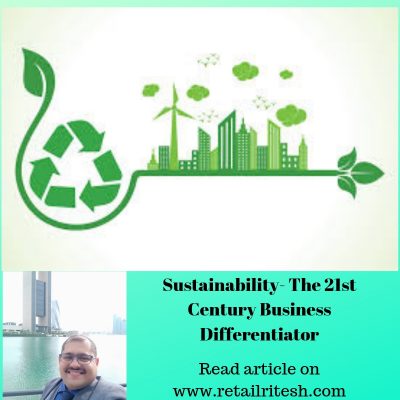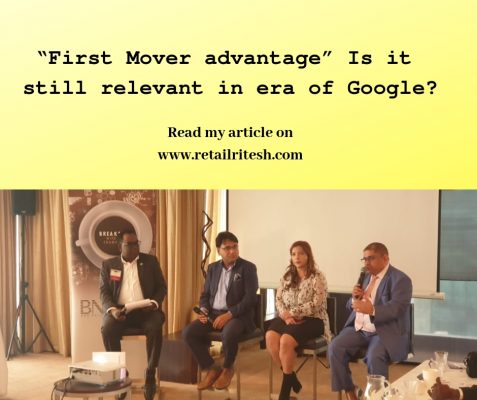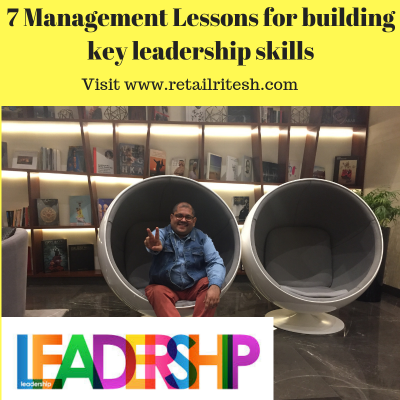Sustainability- The 21st century’s Business Differentiator
“Sustainability” is becoming a business differentiator in the 21st century.
People, today are more aware of the environment and ecological conservations & the term “sustainability” is being heard quite often.
Let me give you an interesting statistics here; of the 7.5 billion virgin forests that once covered the Earth, nearly half have been cut down for human consumption, with devastating effects, such as global warming, and threatening indigenous people and native species.
In my previous article, I talked about sustainability in the fashion sector and now I would highlight a few sustainable brands in other sectors like furniture, farming sectors.
Sustainable fashion making commercial sense, read here
A brand must stand for some niche
The foremost requirement for a successful brand is their stand or promise which they make to their customers. Marketers call it “Positioning”… I call it Brand Promise, your Brand identity.
There are new brands that have positioned themselves towards sustainability ie by causing no harm to nature.
Brand: Greenington Fine Bamboo Furniture
Greenington uses Moso bamboo for their furniture. This is one of the fastest-growing plants and extremely sustainable furniture material.
Bamboo is 20% more sustainable and 100% harder than Red Oak. The natural beauty of Moso bamboo creates unique variations in all of their furniture.
Greenington also has a “no waste” mentality. They even use their bamboo sawdust to generate steam for press machines.
Myself, coming from India, we have seen the usage of Bamboo in furniture’s, let me tell you the advantages of bamboo as well.
Bamboo is actually a grass, and grows very quickly, 24 – 48 inches a day.
Bamboo shoots die and decay after 5 to 8 years but their roots will remain healthy and continue producing new shoots, even after the mature shoots have died or been used.
With its wide root system, bamboo crops prevent soil erosion and the plants contribute more oxygen and utilize more carbon dioxide than trees, which makes bamboo demand even more environmentally sound.
Brand: Ikea
The brand has taken sustainable initiatives and has started using sustainable wood materials like saw-dust to make pressed boards as well using Bamboo wood to produce DIY (do it yourself) furniture.
Today Bamboo furniture category contributes 1% of Ikea’s global sales.
Ikea stands for doing things differently. Ikea team is now investigating paper furniture in their efforts towards using more sustainable materials.
Sustainability made its entry into the fashion
Bamboo is a highly sustainable plant and is becoming an increasingly popular alternative to cotton, not only because of its amazing properties which are kind to you but also it makes less dependence on cotton which is a highly water-consuming crop.
The fabric absorbs moisture away from your skin, keeping you drier & more comfortable.
Bamboo: The 21st century Steel.
Watching this video will explain the usage of sustainable materials in the construction sector as well.

Sustainability in farming
Imagine growing tomatoes in deserts… yes, it is possible using sustainable farming techniques. Watch the video below wherein they are growing tomatoes in the Australian desert using sea water.
Sundrop farms in Australia are innovative disruptors in this sector.

Since Sustainability is a vast topic to be covered in a short article hence my aim for writing this article was to make people aware of techniques that are being used and its commercial feasibilities making it a possible and a viable business proposition.
My readers can now reach me through my blog contact form, in case they need any clarifications.
Good News, you can now subscribe to the blog simply by entering your email address and get notified as soon as an article is published.
About the author:
Ritesh Mohan is a passionate retail professional with over 20 years in the Retail sector, handling some of the biggest brands in beauty, fashion and fragrances retail & FMCG sector. He has been instrumental in the growth of some of the regional brands as well in the Middle East region.
Ritesh specializes in Retail management, Product development, and Brand Management, Retail Operations, Sales Management, and Franchising & Business Management.
He strongly believes in empowering business owners with his wisdom & experience of around two decades in the industry.








